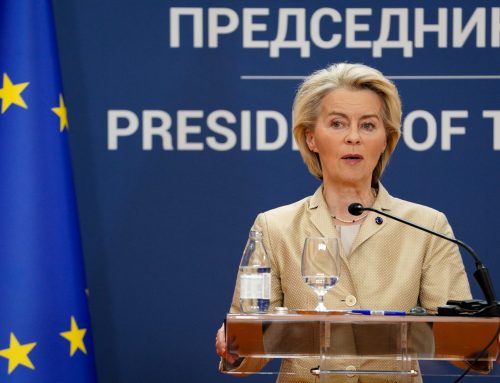From 1 January to 30 June 2019, Romania holds the six-month rotating Presidency of the European Union. Romania is in close coordination with the Trio EU Presidencies of Finland (July-December 2019) and Croatia (January-June 2020). This is the first mandate for Romania. It will have the possibility to imprint its national vision on the strategic debates concerning the future of the European project, to directly contribute to the process for its consolidation, and to promote parts of the European agenda which the country finds important.
The presidency of the Council rotates among the EU member states every 6 months. During this 6-month period, the presidency chairs meetings at every level in the Council, helping to ensure the continuity of the EU’s work in the Council.
Member states holding the presidency work together closely in groups of three, called ‘trios’. This system was introduced by the Lisbon Treaty in 2009. The trio sets long-term goals and prepares a common agenda determining the topics and major issues that will be addressed by the Council over an 18 month period. On the basis of this programme, each of the three countries prepares its own more detailed 6-month programme.
The presidency is responsible for driving forward the Council’s work on EU legislation, ensuring the continuity of the EU agenda, orderly legislative processes and cooperation among member states. To do this, the presidency must act as an honest and neutral broker.
The presidency has two main tasks:
- Planning and chairing meetings in the Council and its preparatory bodies
The presidency chairs meetings of the different Council configurations (with the exception of the Foreign Affairs Council) and the Council’s preparatory bodies, which include permanent committees such as the Permanent Representatives Committee (Coreper), and working parties and committees dealing with very specific subjects.
The presidency ensures that discussions are conducted properly and that the Council’s rules of procedure and working methods are correctly applied.
It also organises various formal and informal meetings in Brussels and in the country of the rotating presidency.
- Representing the Council in relations with the other EU institutions
The presidency represents the Council in relations with the other EU institutions, particularly with the Commission and the European Parliament. Its role is to try and reach agreement on legislative files through trilogues, informal negotiation meetings and Conciliation Committee meetings.
The presidency works in close coordination with:
- the President of the European Council
- the High Representative of the Union for Foreign Affairs and Security Policy
It supports their work and may sometimes be requested to perform certain duties for the high representative, such as representing the Foreign Affairs Council before the European Parliament or chairing the Foreign Affairs Council when it discusses common commercial policy issues..
Key documents of the Romanian Presidency:




